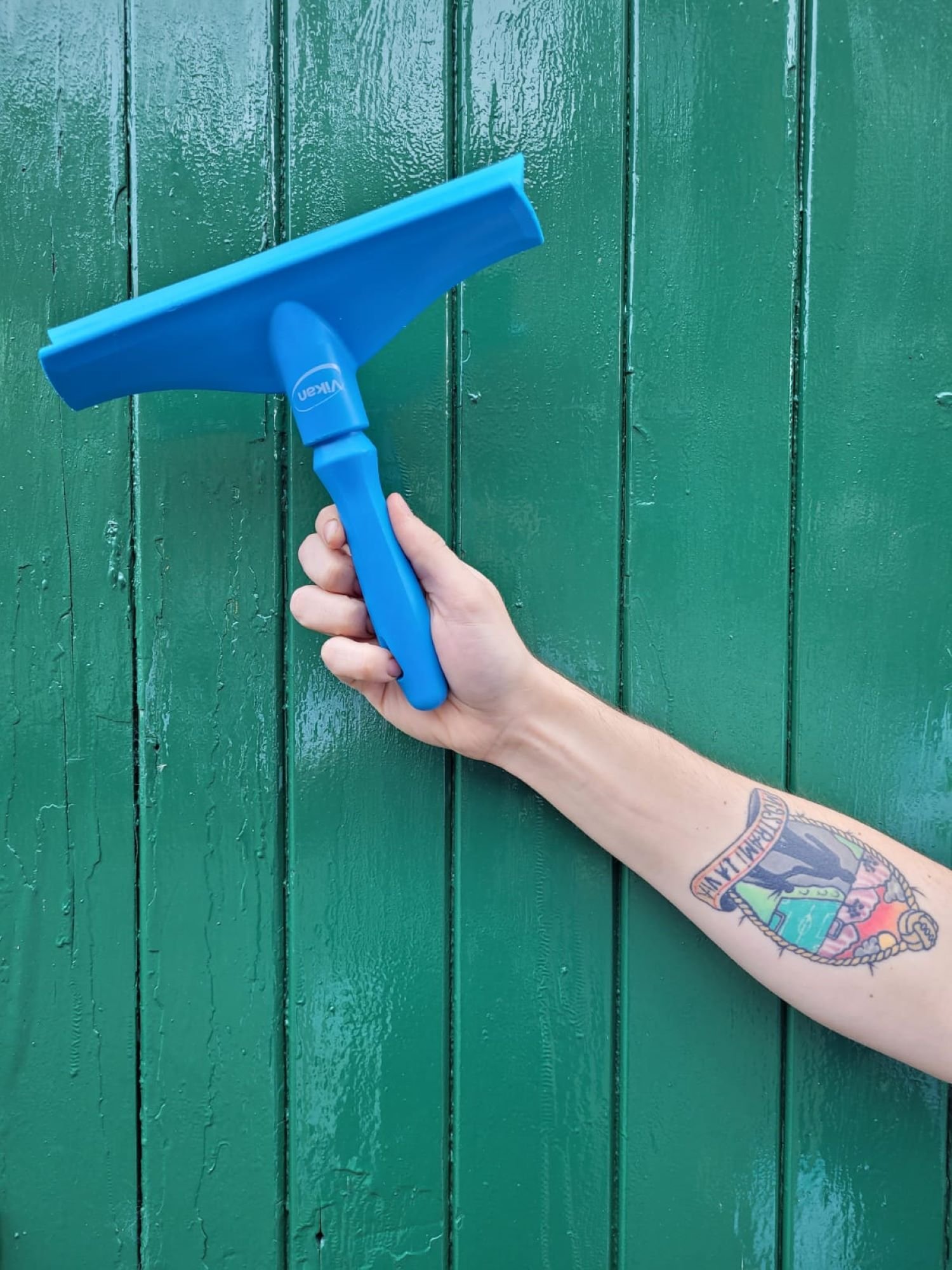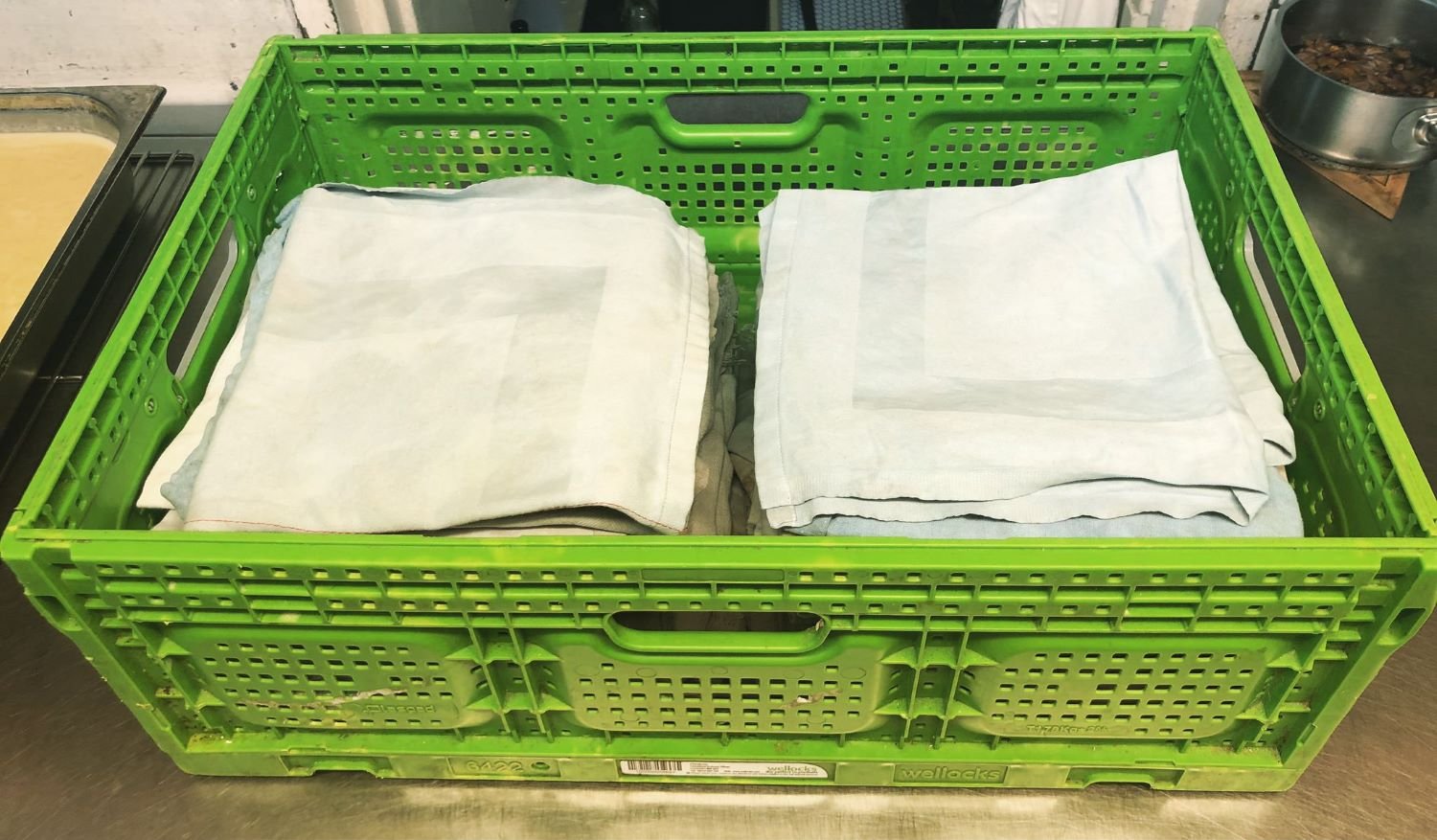CLEANING PRODUCTS
At work, we all spend about as much time cleaning as we do cooking. Now, that’s a bit of an exaggeration but we do burn through cleaning products fast.
THE SOLUTION
-
Use suppliers that offer refill services and/or sustainable packaging - such as Fill.
Fill offer cleaning products in refillable containers across parts of the UK. They are also collaborating with Planet Minimal in London, delivering Fill products to the hospitality sector in electric cars.
Fill don’t use harsh chemicals and they can still handle the grease of a professional kitchen - just ask Bournemouth’s Terroir Tapas and Cornwall’s Blowerspace.
Note: Plastic-free doesn’t mean a company isn’t using nasty chemicals - make sure to check this out first before choosing a supplier.
-
These can last a lot longer than a few days, here are some tips for how:
Designate a storage space.
Limit the number in use to avoid waste.
Hang and dry them if they get wet.
FSC-certified gloves such as If You Care Household Gloves are best for the environment.
-
Try salad spinning blanched vegetables or properly draining them on a tray as opposed to throwing them straight into a container with a J cloth.
Treat your soft herbs like flowers. Upon arrival, cut off the base of the stems and then place in water, stem first. Hard herbs can be put straight into an airtight container. See below for an example.
Use a reusable cloth or rag to wipe up your board during service.
There are compostable J cloths around which are a better option than the classic ones but they do release toxins in their production. If using, ensure they are not viewed as contaminants by your food waste management system.
The most sustainable option is to simply avoid using those J Cloths.
-
Once you’ve hot soaped a section, use a squeegee or soak it all back up with the same sponge. Then use a clean reusable rag/cloth or a dry sponge to sanitize.
Chat to your linen supplier. Many companies offer cheap bags of reusable cloths or dyed blue rags specifically designed for wiping surfaces.
The Brown Paper roll we suggest below is FSC 100% recycled paper certified, has had all non essential chemicals and dyes removed and comes without any plastic packaging.
Note: Blue/brown roll can be sent in small quantities to an industrial composting site but not to an anaerobic digestion facility. The best thing to do is pop it straight into the general waste or compost on-site if it’s not too contaminated.
OUR SUGGESTIONS
OUR SUGGESTIONS
Here is the recycled Brown Paper roll (link above) that was used at the Fat Duck. It comes with no plastic packaging and with all non essential chemicals removed.
Soft herbs being treated like flowers - no J cloths necessary!
Hypha restaurant purchased their own cloths and use a great colour-coded system to use less blue roll and J cloths. Click through to see the details.
The faithful squeegee - one of the best tools to reduce the amount of blue/brown roll you use in your kitchen. This one by Vikan is particularly good.
Eat Your Greens Leeds also have a colour-coded system. Red and pink cloths are used for high-risk wipe-ups. EHOs have had no problem with their system.







